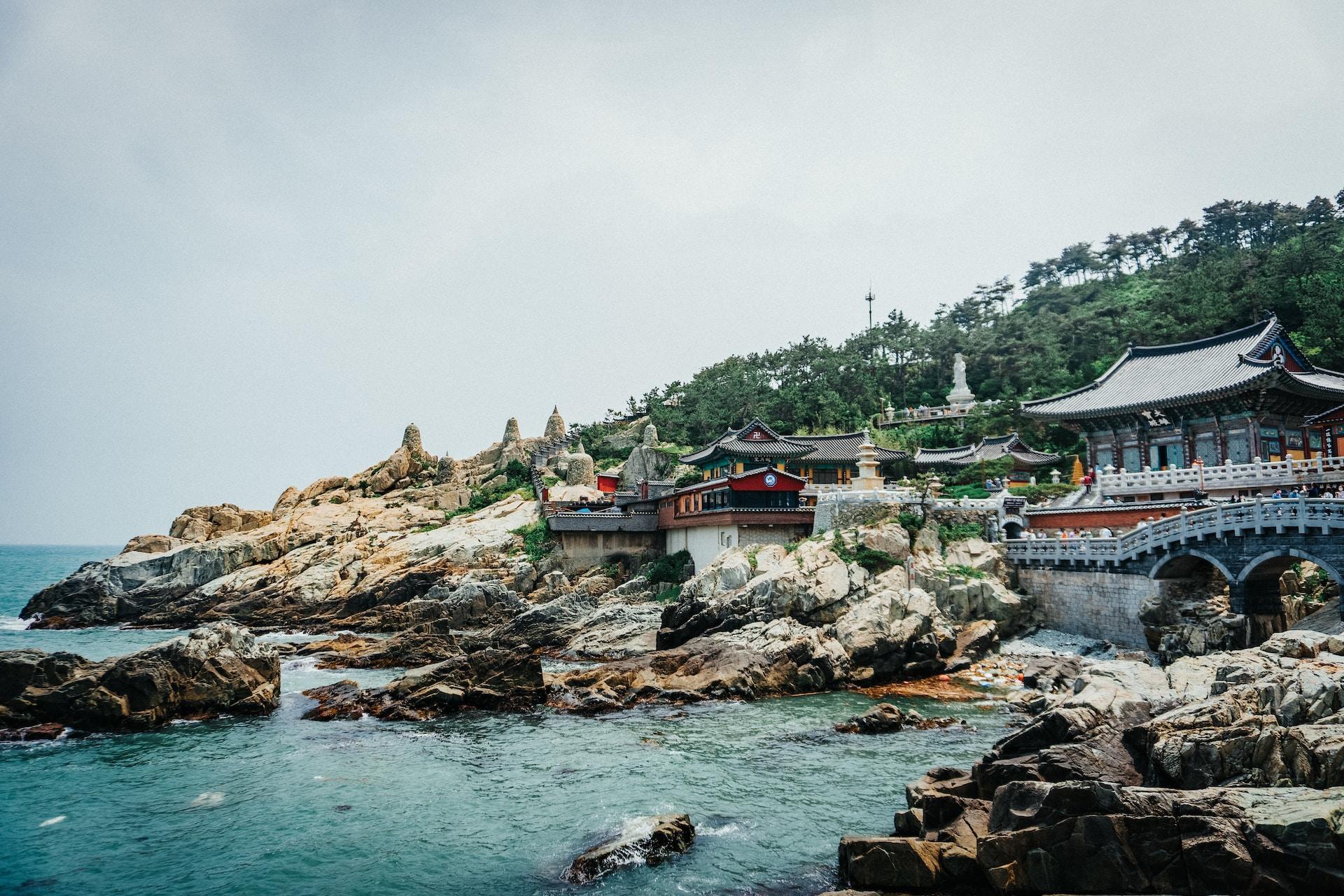One can build a mountain by gathering grains of dust.
Korean Proverb
Busan - also called Pusan, is often less talked about than her big sister, Seoul. That's a shame because South Korea's second city has amazing things on offer throughout the year. So if you're preparing for a trip to South Korea, you should put Busan on your list of places to go. Not the least because you'll have more room to breathe there.
compared to 9,9 million inhabitants in Seoul
What a slice of Korean culture you'll treat yourself to when visiting Busan! You'll take a walk on the legendary Haeundae Beach and stroll through the picturesque Dongbaek Park. Don't forget to tour the iconic Jagalchi fish market or the Haedong Yonggungsa Temple!
But don't start packing just yet, you have to figure out if you can afford such a grand tour. Lodging, metro fares and admission fees all add up. You won't want to skimp on sampling that delicious Korean food, either. So let's stop the wons from flying out of your pocket unexpectedly by looking at expenses for your stay in Busan.
As a preview, we compare expenses in Seoul and Busan. Knowing roughly what to expect will save you any nasty surprises while you're fully in the spirit of travel. Keep in mind that these estimated prices are averaged out. But they still give you an idea of what you can expect to pay in Busan compared to Seoul.
| City | Flight | Visa | Lodging | Food | Transportation | Tickets/Spending Cash |
| Busan | $1350/1550 | $15 | $85/night | $25/meal | $1.7/ticket | $25-35/day |
| Seoul | $1350/1550 | $15 | $85/night | $25-35/meal | $1.7/ticket | $50-58/day |

How Much for a Flight to Busan?
Travelling to a foreign country incurs multiple costs. You'll pay for lodging - be it at a hotel or a holiday rental. Where you stay matters too: in the city's centre or a more distant quarter? You might prefer to hire a car instead of riding public transportation, but even the latter option demands a fee.
You'll likely buy tickets to attractions and events, too. But among these expenses, your plane ticket matters the most. To get to a country as far as South Korea is from Australia, it's a safe bet that you'll spend more than just a few dollars. But airfares might pleasantly surprise you, especially if the conditions are just right for you to land the least expensive fares.
Plan your travel as far ahead as possible and set up price alerts.
Plan your departure from a more remote airport that caters to budget carriers.
Keep in mind that seasons matter; try to plan your trip for outside of peak travel season.
Compare airfares, particularly if your dates are flexible.
You can find plane tickets to Busan as low as $960-1160 if you're diligent and have patience to spare. Still, the fact remains that South Korea is a distant land. You may find it more accessible - and plane tickets there are cheaper if you don't mind having connecting flights.
So If you don't mind a trip with a few stopovers, that could dramatically lower your airfare, even as other airlines raise their direct flight fares. This is crucial information, on the same level as factoring in what season you plan to travel in. Both of these aspects will help you plan your travel budget.
The best times for your Busan visit are Spring (between March and May) and Autumn (September-November). These peaks are also when airfares are the highest.
How Much is a Visa to Visit South Korea?
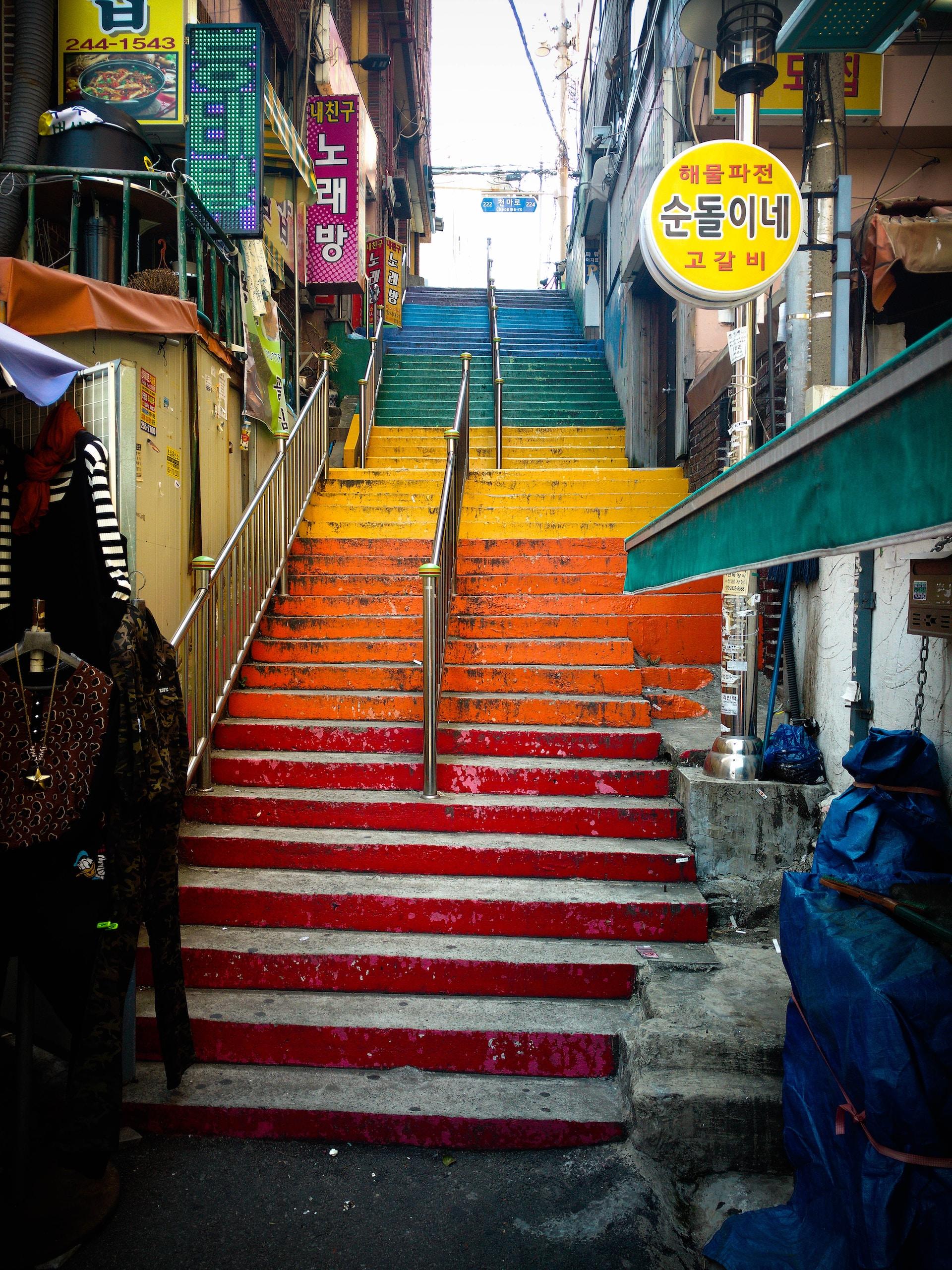
To get to Busan, you and every other traveller must first address the visa question. Luckily, South Korea makes it easy: for stays of less than 90 days, Australian travellers don't need a visa.
Of course, you'll still need your passport to get into the country and move around freely. But for a less-than-90-day stay, that's all you need. Except for a mandated Korea Electronic Travel Authorization (K-ETA), that is.
South Korea's initiative to relaunch the tourist industry is called Visit Korea Year. To support that drive, the country has lifted the mandate for K-ETAs until December 2024. At this time, you do not need to apply for entry into South Korea. Busan welcomes you already!
As a general rule, travellers must have a K-ETA to enter South Korea. You can submit your application online from the K-ETA site or from the Korea Immigration Service webpage. Travellers may also fill out their applications upon arrival but they would pay more for it.
or 10.000 Korean won
So whether you plan on one week or two months in Busan, you've no need for a visa. But if you plan to stay longer than 90 days, you must have some type of visa. They can be a bit on the pricey side:
Tourist visa: $62
Business visa: $62
Student visa: $93
No matter the visa type, it will be ready for use five days after you submit your application. With your documents in order, nobody can bother you!

What Should You Plan to Spend on Lodging in Busan?
No matter your destination, staying in an unknown land implies spending at least one night there; more if you have an affinity for that destination! For that, Busan isn't much different than her big sister, Seoul, whether you're focused on lodging type or average price.
As you plan your trip, you should know what type of accommodation you want: A hotel stay in Busan, private lodging with an individual, an ocean view, a comfortable bed, dining within the facilities, joined rooms, a double bed or larger...
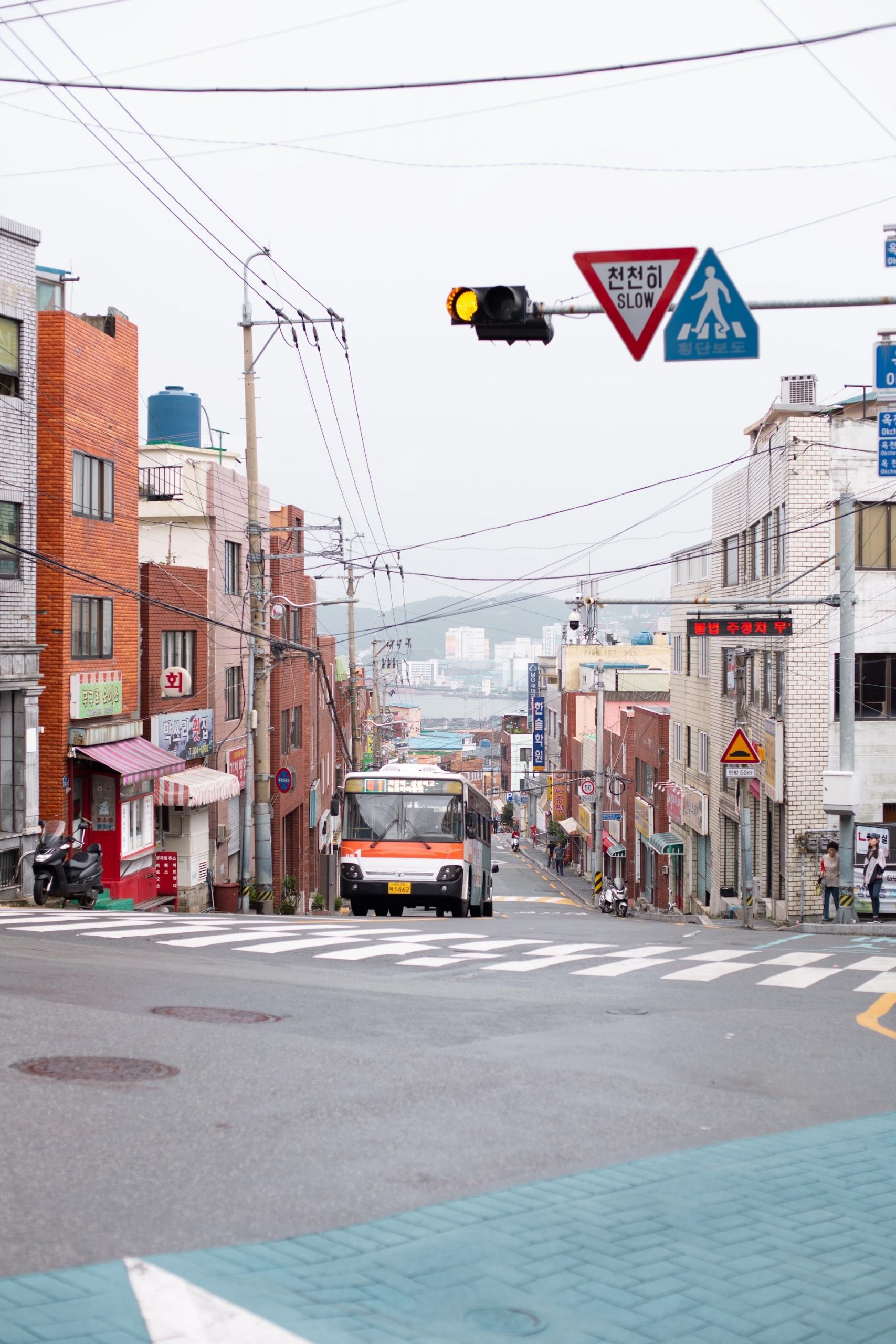
Do you have a rough idea of the lodging situation you want? We've gathered estimated rates for the three most popular options for a one-week stay for two people:
For a hotel stay, you might get by with as little as $115 per night.
For a holiday let such as Airbnb, the rate starts at $95.
For a hostel stay, you might get by with as little as $38 per night.
If a hotel stay is the only lodging you'll consider, note that per-night prices range from £30-200 for single occupancy. Busan presents travellers with four-star hotel rooms with comfortable beds. The advantage is that such rooms can be had for between $115-135 per night! Such deals are definitely worth looking into.
For a unique travel experience, consider a 'temple-stay'. It entails exactly what it sounds like: spending the night in a temple! You may do so for around $115/night. You won't find this lodging option in Busan's city centre, they're more off the beaten path. For instance, the Beomeosa Temple, located on Mount Geumjeongsan.
How Much to Budget for Food in Busan
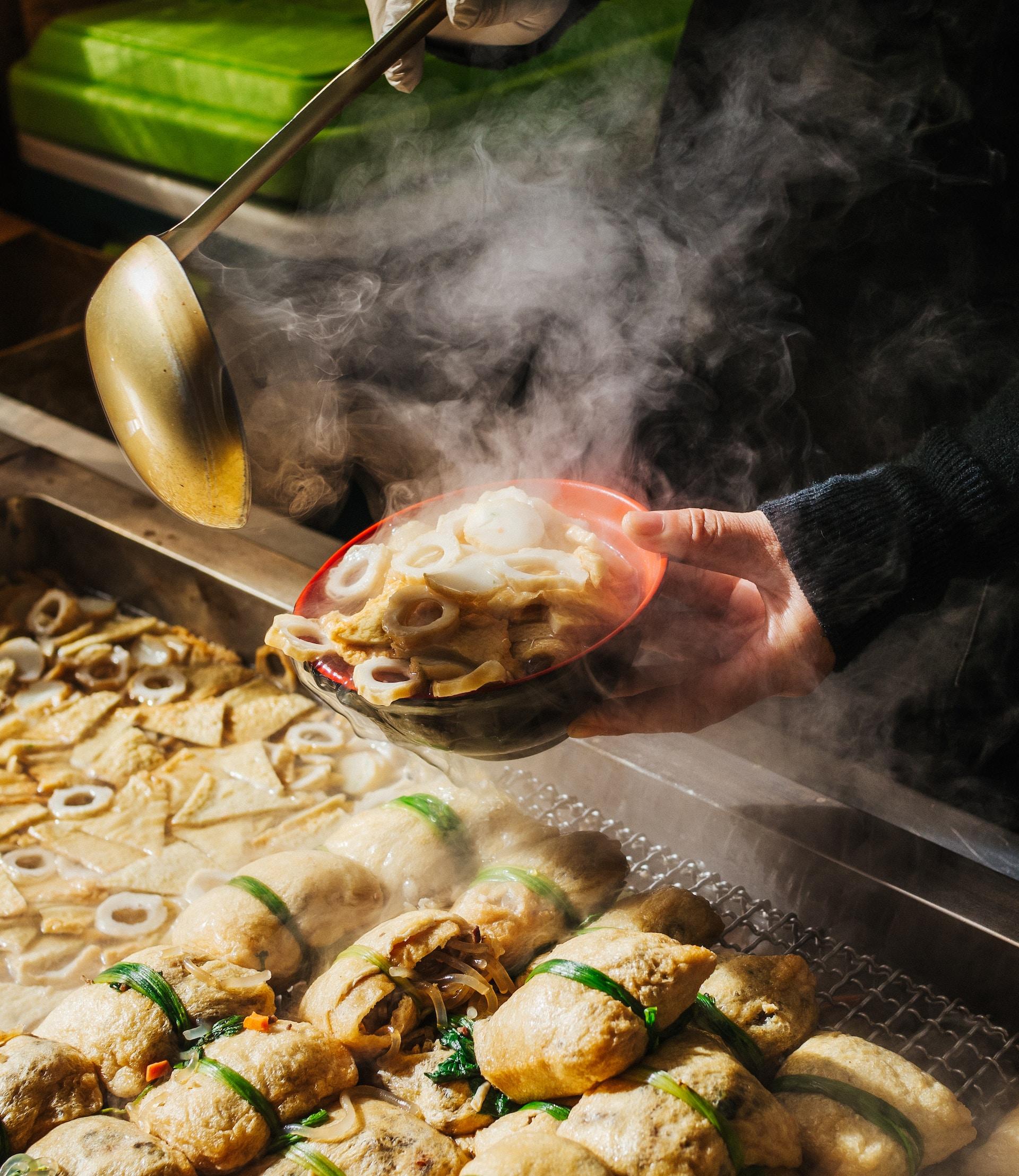
Seafood, Korean barbecue, hotteok and bibimbap. Busan is where the good life is, especially when it comes to food! Indeed, between its restaurants and covered markets, South Korea's second city lacks nothing for international gastronomes!
But when it comes to pricing, how should a traveller eat without temptation from everything that smells and looks so good? To establish an average food budget for your stay in Busan, let's take our cue from Seoul. There, per-day costs roughly equal what it might take to buy budget meals on holiday in Australia. Busan is a bit cheaper than that.
To dine in a sit-down restaurant, you might spend the won equivalent of $25 per person. Such prices suggest you must budget for those occasions. But if you have such an eatery in mind, it will be money well spent. The online reviews don't lie; this city has some fantastic restaurants!
To get by on less, you can try your hand at cooking if your lodging arrangements allow it. Or you could head to a local market. Gukje, the Jagalchi fish market or Seomyeon are well worth your time and attention!
What to Budget for Transportation in Busan
Like many big cities, Busan's transportation system is easy to navigate. You can avoid hiring a car because you'll have buses and underground trains to help you get around.
as well we one light-rail line and a commuter rail line that connects the suburbs.
In Busan, a one-way ticket costs 1400 krw or 1600 krw if you travel beyond 0,5km. Currency variations aside, these tickets are a bit less than a pound for short trips and a bit more for the higher fare. As in all big cities, Busan offers transport passes. For instance, a day pass costs 5000 krw, or about $6.
T-money is a reloadable transport card valid for fares on the metro, bus and even taxis. You can buy such cards in neighbourhood food shops; one card costs around 2500krw - just under $4. Using T-money reduces each fare - you'll pay 1250krw (about £$3) per ride. Savings are good, so get your T-money and start riding around Busan as you would in Seoul!
To ride Busan buses, figure on about the same fare price as the metro - but remember to factor in the line colour. To avoid any surprises, prepare to spend a bit more than 1300krw per ride.
Finally, the taxis - an equally popular means of transport in Busan. What a way to arrive at the beach in style! The base fare for Busan taxis is about 2800/3000 krw; a bit less than $4. Of course, the farther you travel, the higher the fare.
If you want to ride the train to Seoul, such tickets start at around $43. It's not like you'll be riding the Train to Busan, the 2016 zombie sensation Yeon Sang-ho directed. But it's still a great train ride. And besides, you still have some adventuring to do before flying off to your new destination.
How Much Should You Budget for Busan and South Korea?
The advantage of Busan as a destination is its vast number of free attractions. Quarter to quarter, with only a few minutes' walk, you're sure to find something new to experience. Hugging the coast as it does, this city boasts beaches - Haeundae, Gwangalli and Songjeong. It offers many scenic areas and parks - Dongbaek, Taejongdae and Igidae among them.
We also find the essentials of the South Korean experience: Jeju-do and the Gamcheon cultural village. These sites allow us to stroll around without having to always think about our spending.
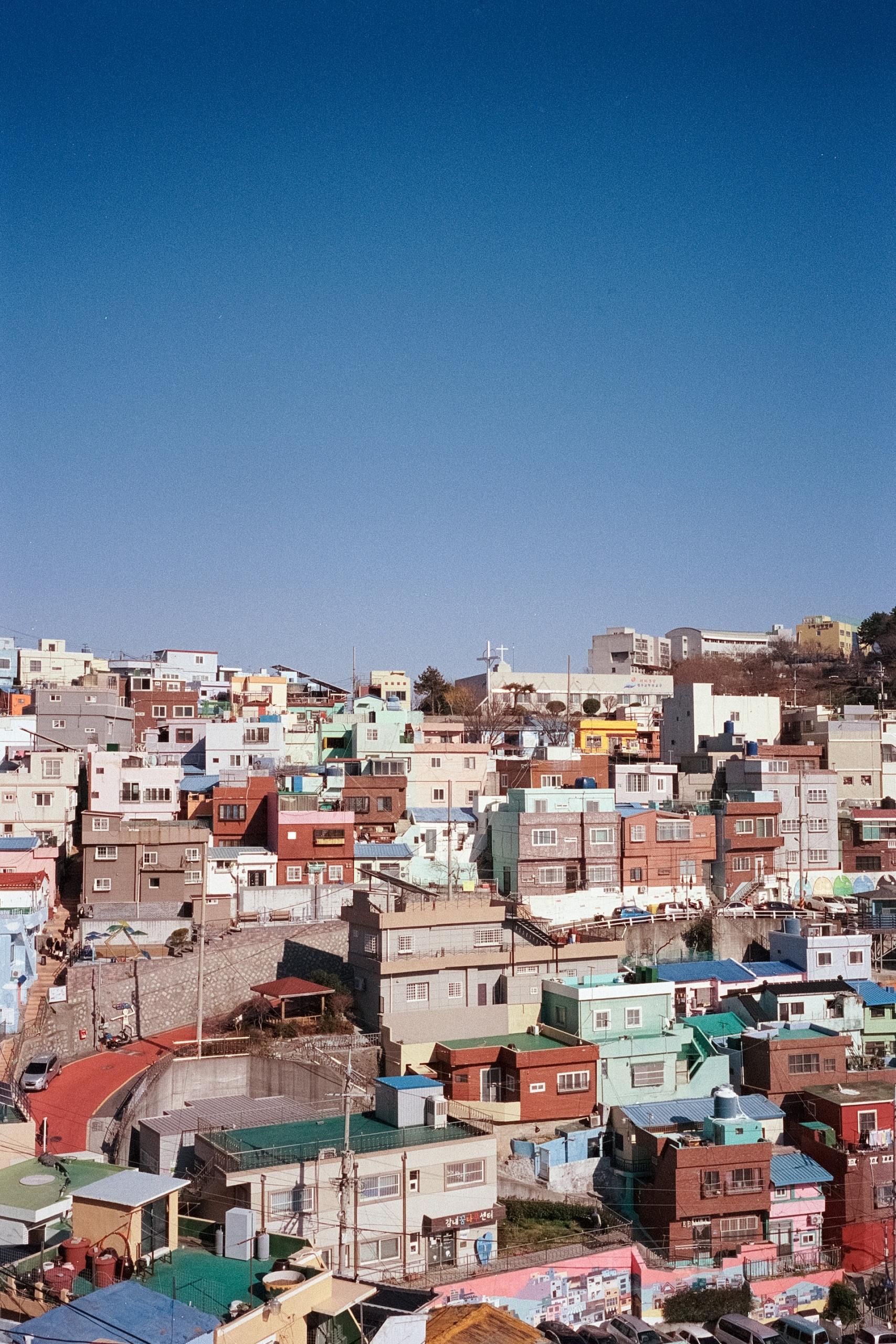
Among the more cultural family activities one might enjoy in Busan, these examples give you an idea of per-person ticket prices for such attractions (all currency conversions approximate):
Busan Tower: $14.10 per person (12.000krw)
Donggung Palace: under $4 per person (3000krw)
Sealife Aquarium: $35.5 per person (30.000 krw)
Travelling is fun but it's also an expense. From all of this, along with all the all the online reviews, we see that Busan isn't the cheapest destination. But it is certainly one of the most pleasurable, especially as you won't have to spend all you have on your first day.
As always when travelling, balancing impulse against prudence is crucial. You might figure on $29 per 39 person per day, on average. That will let you indulge in a whim or two without feeling deprived or breaking your bank.
Hurrah for you, headed to Busan! You have much to see and do; you're going to have a great time. Dare we hope you might be the next Hallyu ambassador?
Summarise with AI:

